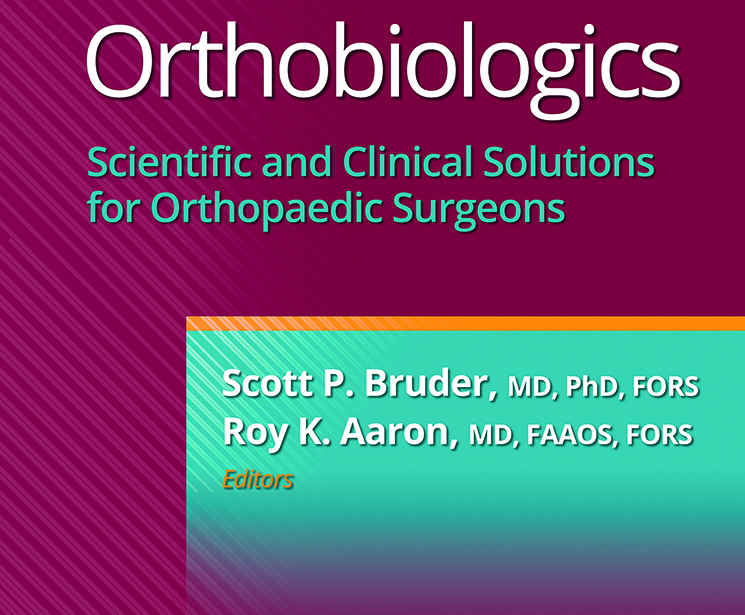AAOS Now, November 2023
-

Biologics: Hope, Market Pressures, Evidence, Guidelines, and Equipoise
-

AAOS Biologics Initiative Focuses on Advancing Orthobiologics for Better Outcomes
-
AAOS Biologics Symposium Investigates the Present and Future of Orthobiologic Therapies
-

Understanding Regulatory Pathways for Osteobiologic Use in Orthopaedic Surgery
-

AAOS Book on Orthobiologics Provides In-depth Insights into an Emerging Field
-

Exploring Skeletal Stem Cells: Insights and Challenges in Cartilage Regeneration
-

An Opportunity Exists to Better Understand Patient Pain through Patient-reported Outcome Measures
-

Study Finds Increased Risk of Periprosthetic Fracture in THA Patients following Bisphosphonate Use
-

Lower Rates of Revision Associated with All-polyethylene Tibial Components in TKA
-
Attending Orthopaedic Surgeons on Call at Night Have Reduced Sleep Quality and Heart-rate Variability
-
Type of Deep Wound Closure Used in PJI Treatment Does Not Impact Likelihood of Treatment Success
-
Poor Understanding of Over-the-counter Medications Puts Orthopaedic Patients at Risk
-
Study Reports on Long-term Outcomes of Total Hip Arthroplasty in Patients Younger than 30 Years
-
Use of Beta Blockers May Be Associated with Increased Risk of Fracture Nonunion
-

Second Dexamethasone Dose after Primary TKA Is Associated with Reduced Opioid Use and Pain
-
Study of AJRR Data Investigates Trends in TKA Technology Use at Safety-net Hospitals
-

Increased Risk of Periprosthetic Femur Fracture with Cementless Femoral Fixation for THA
-

Dual Mobility Articulation in Revision THA: An Analysis of Outcomes from the AAOS American Joint Replacement Registry
-

Imageless Navigation during THA Is Not Associated with Improved Outcomes
-
Study Evaluates the Efficacy of Serum and Synovial Diagnostic Markers to Diagnosis PJI following Hemiarthroplasty